
12 Amazing Impacts of the Digital Economy
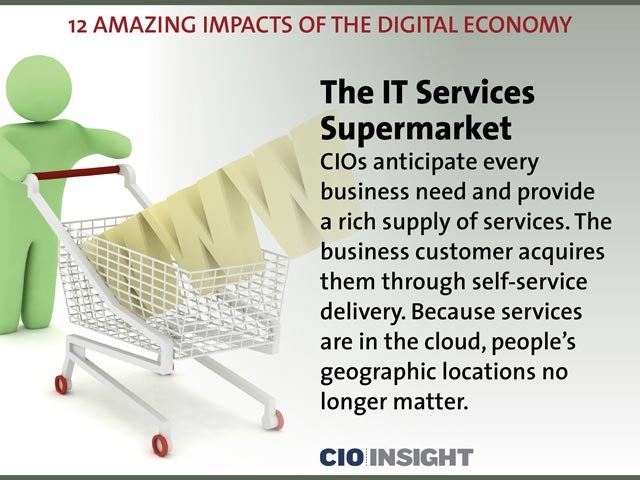 The IT Services Supermarket
The IT Services Supermarket
CIOs anticipate every business need and provide a rich supply of services. The business customer acquires them through self-service delivery. Because services are in the cloud, people’s geographic locations no longer matter.
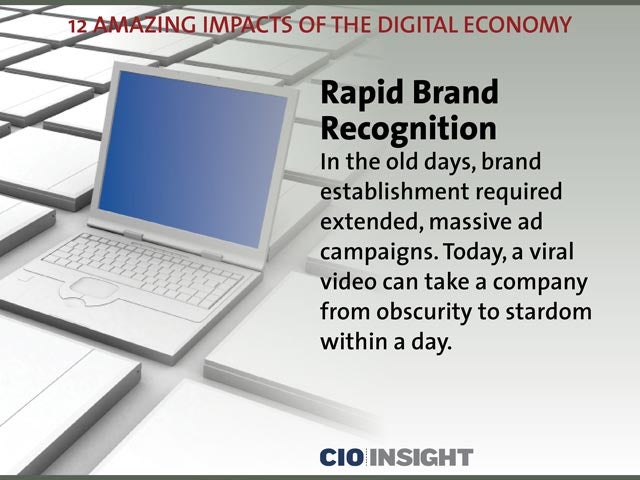 Rapid Brand Recognition
Rapid Brand Recognition
In the old days, brand establishment required extended, massive ad campaigns. Today, a viral video can take a company from obscurity to stardom within a day.
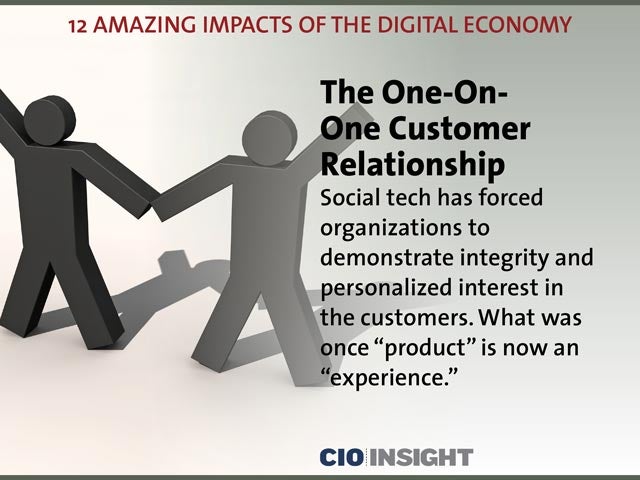 The One-On-One Customer Relationship
The One-On-One Customer Relationship
Social tech has forced organizations to demonstrate integrity and personalized interest in the customers. What was once “product” is now an “experience.”
 The “Open Door” Company
The “Open Door” Company
Because digital tech slashes transaction and collaboration costs, leading organizations make their boundaries porous, using the Internet to harness knowledge, resources and capabilities from the outside.
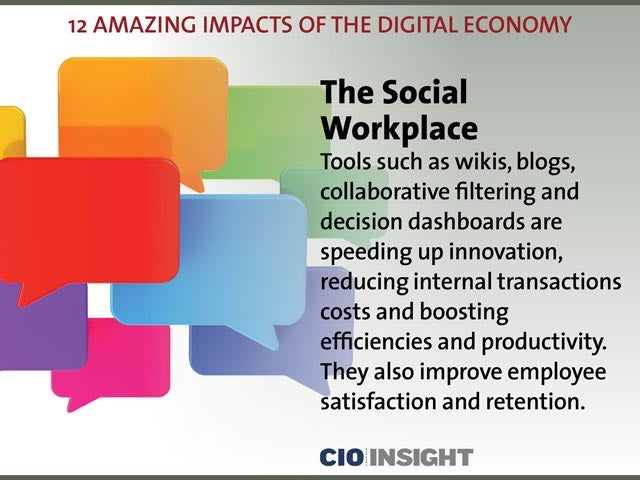 The Social Workplace
The Social Workplace
Tools such as wikis, blogs, collaborative filtering and decision dashboards are speeding up innovation, reducing internal transactions costs and boosting efficiencies and productivity. They also improve employee satisfaction and retention.
 The Empowerment of Analytics
The Empowerment of Analytics
No longer confined to sales and financial assessments, big data is now collected and analyzed from many sources to support a broad range of functions. Thus, individual workers are encouraged to initiate key value-building decisions.
 Consumer-Driven Price
Consumer-Driven Price
Sales and marketing leaders no longer dictate prices. With rapid product-to-market cycles, comparison shopping sites and other influencers, the consumer market now calls the shots.
 A Super Supercomputer
A Super Supercomputer
Quantum computers, which Google and others are investigating or developing, will be literally millions of times more powerful than today’s supercomputer.
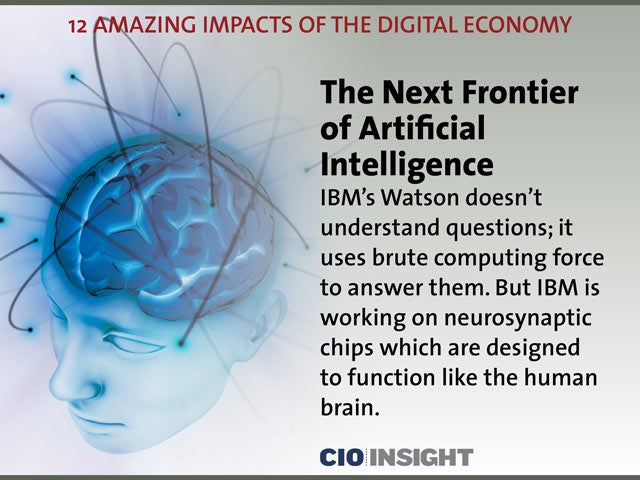 The Next Frontier of Artificial Intelligence
The Next Frontier of Artificial Intelligence
IBM’s Watson doesn’t understand questions; it uses brute computing force to answer them. But IBM is working on neurosynaptic chips which are designed to function like the human brain.
 A Wiser Job Candidate
A Wiser Job Candidate
Candidates arrive armed with knowledge and intelligent questions about an organization’s culture, values and goals. Which means hirers are replacing traditional inquisition interview approaches with a dialogue model.
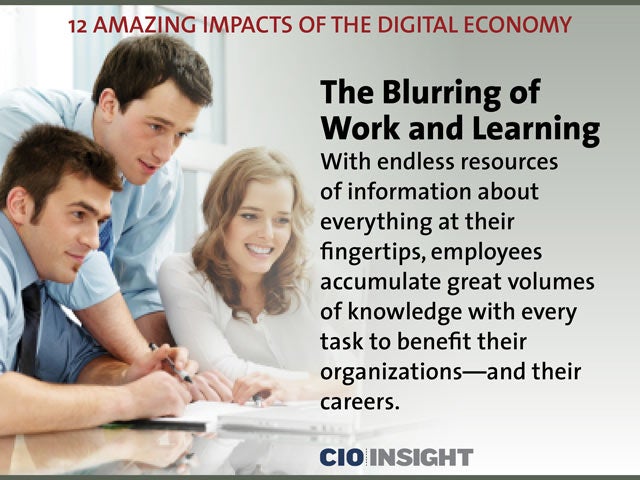 The Blurring of Work and Learning
The Blurring of Work and Learning
With endless resources of information about everything at their fingertips, employees accumulate great volumes of knowledge with every task to benefit their organizations—and their careers.
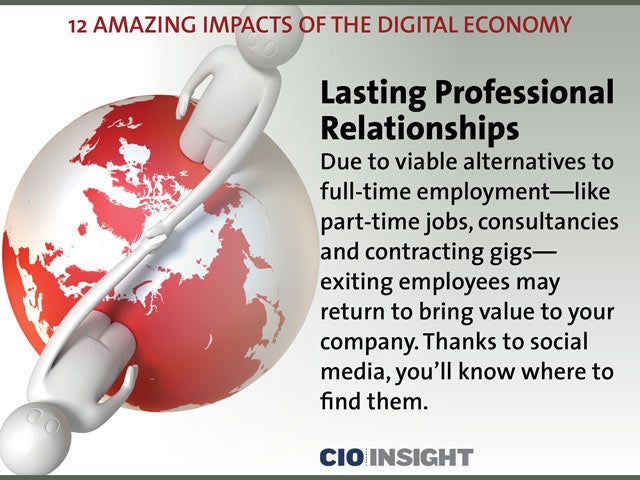 Lasting Professional Relationships
Lasting Professional Relationships
Due to viable alternatives to full-time employment—like part-time jobs, consultancies and contracting gigs—exiting employees may return to bring value to your company. Thanks to social media, you’ll know where to find them.